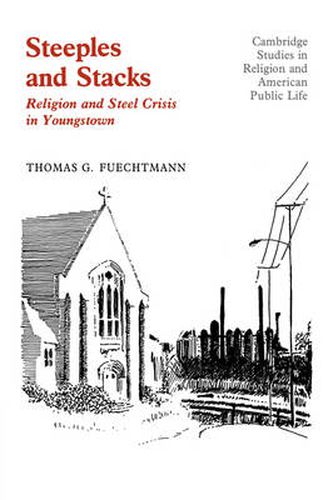Readings Newsletter
Become a Readings Member to make your shopping experience even easier.
Sign in or sign up for free!
You’re not far away from qualifying for FREE standard shipping within Australia
You’ve qualified for FREE standard shipping within Australia
The cart is loading…






Steeples and Stacks is a study of the religion-based community group that formed in Youngstown, Ohio, in 1977 in response to the proposed shutdown of a portion of the Youngstown Sheet and Tube’s steelworks. The closing was one of the most dramatic of the plant closings that have come to symbolize American deindustrialization. Church leaders and steelworkers joined together in Youngstown to form a powerful ecumenical political coalition, establishing links with Washington lobbyists and proposing, eventually, to buy the plant and run it as a community industry. Though the proposal ultimately failed, the story of the coalition provides an illuminating view of the growing interaction between religious and public affairs in American life. The book also provides an original analysis of the dynamics of intergovernmental, corporate, and community relations at the local level. The author, who became inserver, focuses on the pivotal role of religious leaders that distinguished the Youngstown case from so many other plant closings across the nation.
$9.00 standard shipping within Australia
FREE standard shipping within Australia for orders over $100.00
Express & International shipping calculated at checkout
Steeples and Stacks is a study of the religion-based community group that formed in Youngstown, Ohio, in 1977 in response to the proposed shutdown of a portion of the Youngstown Sheet and Tube’s steelworks. The closing was one of the most dramatic of the plant closings that have come to symbolize American deindustrialization. Church leaders and steelworkers joined together in Youngstown to form a powerful ecumenical political coalition, establishing links with Washington lobbyists and proposing, eventually, to buy the plant and run it as a community industry. Though the proposal ultimately failed, the story of the coalition provides an illuminating view of the growing interaction between religious and public affairs in American life. The book also provides an original analysis of the dynamics of intergovernmental, corporate, and community relations at the local level. The author, who became inserver, focuses on the pivotal role of religious leaders that distinguished the Youngstown case from so many other plant closings across the nation.